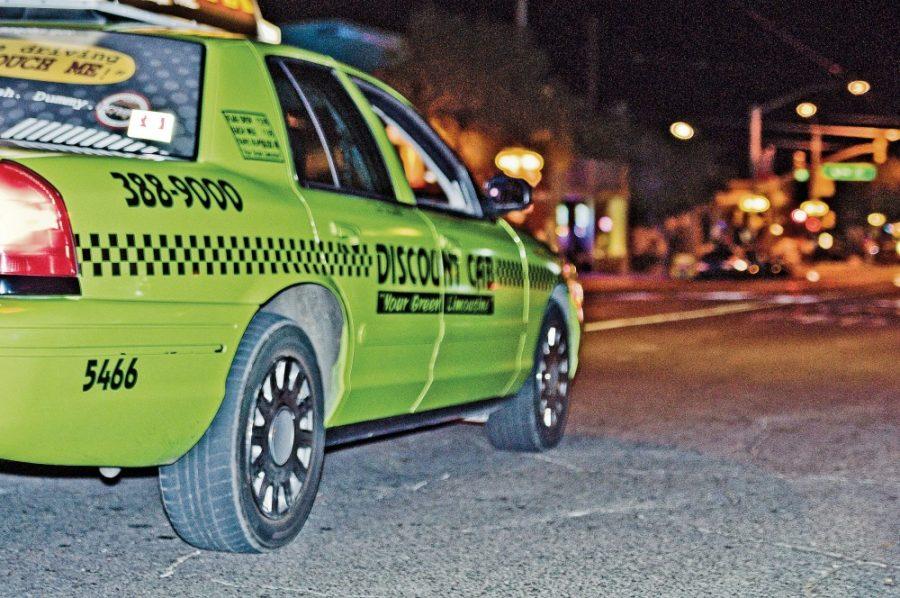Despite the Sun Link Tucson Modern Streetcar’s proposed route through areas with a thriving nightlife, the new form of transportation isn’t a concern for taxicab company owners who are willing to stay out much later.
Shellie Ginn, streetcar project manager, said that although there were initial talks of having the streetcar run until 2 a.m., project leaders later decided that was most likely not going to happen due to operation costs and safety purposes. The city’s department of transportation has a bid out for a management services group who will help decide how late the streetcar will run.
“Right now, just based on what we’re hearing, I don’t think that we are running to bar time,” Ginn said. “They are talking about running probably until about one in the morning.”
A lot of business for taxicabs comes from the Fourth Avenue and downtown nightlife. Doormen at bars and nightclubs often have to call taxicabs for people too drunk to drive.
Adam Carvell, a doorman at The Buffet Bar and Crock Pot, said he calls taxicabs for his customers about eight to 10 times a day, mostly between 6 and 10 p.m. This doesn’t include the taxicabs he waves down during peak hours on weekends.
“The majority of people we send home in cabs are responsible middle-aged people who realize that they went out with the intention of taking a cab,” Carvell said. “If someone is severely intoxicated, a cab is the best choice.”
Nancy Jeannie Langan, owner of Jeannie’s Van and Taxi Cab Service, doesn’t think her business will be affected once the streetcar is running, she said. Taxicabs prevent people from getting citations for being drunk in public, Langan added.
“I don’t think there’ll be any choice. If people are drinking, they like to take a cab and be secure,” Langan said. “We’ve had people we’ve had to take home that were stone-cold out.”
Frank Alvarado, manager at O’Malley’s on Fourth Avenue said that taxicabs serve a different purpose than the streetcar because they have the capacity of dropping people off at home. While he believes the streetcar may be competition, it won’t have too much of an effect on taxicabs or pedi-cabs.
“It’s competition, so I’m sure it’s going to affect it [business] in some way,” Alvarado said. “It’s one of those things when you’ve got another way for people to get around. I mean, definitely people are going to take advantage of it.”
Tony Rivera, owner and operations manager of University Pedi-Cabs, a taxi service that uses bicycles instead of cars, said he believes the streetcar could enhance his own business by bringing more people to the areas he operates in. Because streetcar stops are every quarter-mile, a pedi-cab bicyclist can pick people up at streetcar stops and take them directly to their destination, he added, and some students agree.
“It’s convenient to just hop in. And they’re free,” said Nick Polston, a business management junior. “It’s kind of a fun thing to do. Some guy is riding on a bike and you’re being towed behind him.”
Pedi-Cabs might even gain business due to streetcar construction because it’s easier to get around in bicycles than in cars, Polston added. Ginn said that although pedi-cabs and the streetcar will be serving the same area they have a different purpose.
“When you’re using the streetcar you really are shifting from location to location versus doing a tour of a site or riding something for the pleasure of riding like a bicycle system,” Ginn said.








